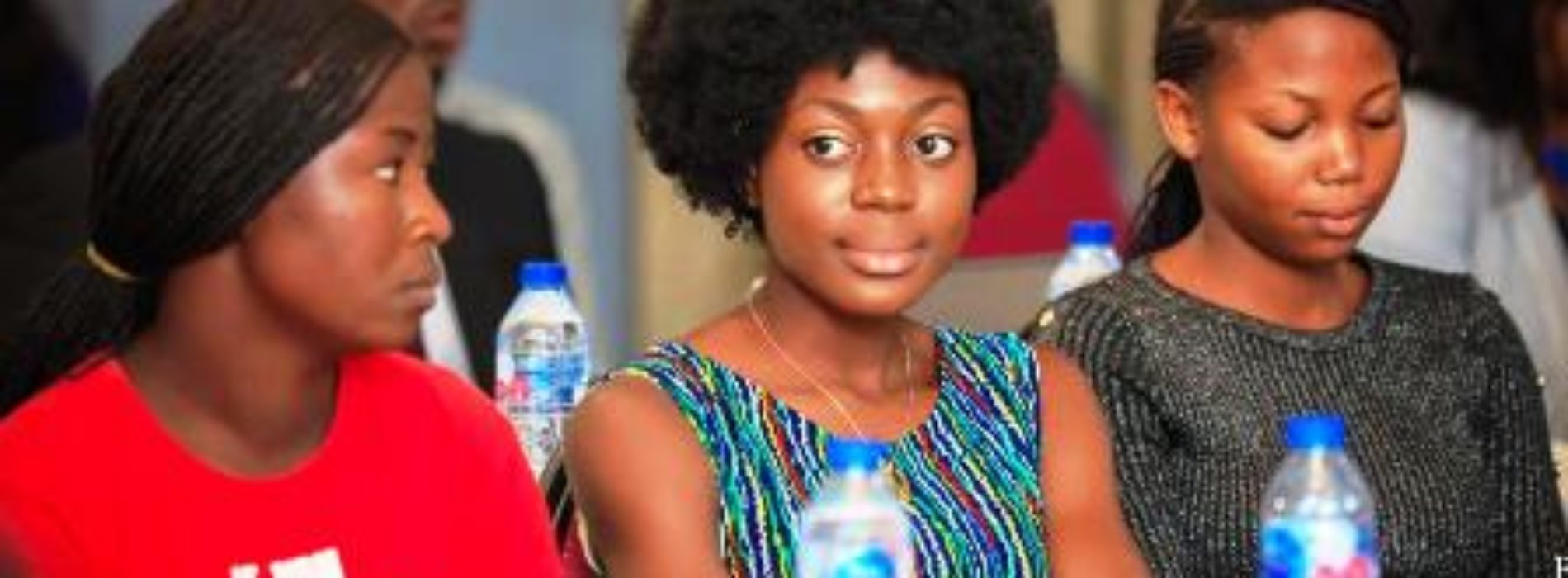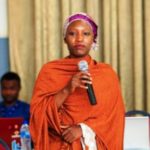International Day of the Girl Child: Girls, civil rights groups speak out
-
There is national confusion about reproductive health, rights of females in Nigeria, and we bear the brunt, they say
There is so much gender-based violence, stigmatization, and stereotyping against girls, as well as inexplicable policies and practices at all levels that leave girls confused and unhappy, the girls said bitterly one after another during the roundtable jointly organised by the Federal Ministry of Health and Society for Family Health to mark the 2019 International Day of the Girl Child.
Other matters about which they are bitter and demand action are poor parental communication and understanding of reproductive health, the society’s expectation of girls living scripted lives determined by other people who do not know their needs or desires, and the claim that decisions that concern them, including educational choices, are taken without involving or consulting them.
“The girl child wants her voice to be heard; she wants to work, pursue a career and become relevant in the society without restriction; she wants to be at liberty to marry at will and to a man of her choice,” declared Synderella Bulus, a young designer with the Adolescents 360 Project implemented by Society for Family Health. She made a presentation on the topic, “What Does the Nigerian Girl Child Want?”
She averred that most adolescent girls lack parental care and support as they are seen to soon end up in a man’s house as wives, and while finances are readily available for other things, it is usually not for the girl child’s education as she is not made a priority.
When the girl child is educated, she is coerced to study a particular course, and not the course of her choice just because she is a girl. Worse, girls are pressured into not coming back home after graduation without getting all set for marriage.
Also, she said, there is poor communication between the girl child and her mother, particularly on issues around reproductive health, adding that girls from broken homes lack proper parenting, and so lack support systems for advice and counselling.
Grace Maduka, an out-of-school girl from Kurudu District, Karshi Road in the FCT, charged that it is necessary to educate mothers because many don’t understand sexual and reproductive health and rights issues, particularly rape; rather they’re judgmental.
“A girl is raped and is in pain, and all her mother has to say is: ‘What were you wearing?’”
“Some girls get pregnant through rape, and they’re afraid to talk to their mothers or other elders because they are going to be insulted, judged or crucified; so they go to friends who may not know much either. They end up in some small clinic for abortion, and in the end lose their womb… There is need for intervention programmes to educate mothers in the communities,” she said.
“Most mothers have no good relationship with their daughters,” declared Aishatu Idris, another out-of-school girl, based in Gwagwalada, FCT. “Once your mother gives birth to you, you’re on your own. They don’t educate girls.”
Aishatu also spoke of the need for intervention programmes for boys, saying that the preponderance of intervention programmes catering to girls alone was unhealthy.
“Boys are left out. One of my male friends once asked me, ‘Why is it just girls, girls, girls… Did God create only girls? We girls are just much more vulnerable, but then a girl can’t impregnate herself,” Aishatu waxed philosophical.
Another girl spoke of the need to enlighten traditional rulers and community leaders because some of them see reproductive health intervention programmes that empower females as corruptive. For that reason they usually start the campaign of stereotyping and stigmatization against beneficiaries.
The girls received support from a cross section of stakeholders from government, the development sector and the Nigerian civil society. They said there are many cases of policy inconsistency or lack of policy on issues that clearly need legal or policy direction, and failure to implement laws or punish those who commit gender-related offences, all of which contribute to the confusion.
“It is a beautiful thing that we’re programming for girls and giving them wings to fly, but oftentimes the wings are clipped by some of the relationships they start,” said Mrs Oluyemisi Ayoola, Deputy Director, Gender, Adolescents, School Health and Elderly Care – GASHE
“If we really want our adolescent girls to soar, we cannot leave out adolescent boys. We should also have programme for boys because, if we’re aiming for demographic dividends, we cannot achieve it with the girls alone… Boys are also abused. Boys need to learn about relationships –that love is not sex, and if a girl says “no”, her “no” is “no”.
Hajiya Fatima Muhammad, Project Director, Adolescents 360 Project explained the attention paid to girls thus: “We seem to be more concerned about girls because it is girls who bear the brunt of the things that are not right about SRH in Nigeria, and violence from males—pregnancy, stigma, trauma etc.
In his opening remarks, Dr Ejike Oji, Chair of the Association for the Advancement of Family Planning said that the event was an opportunity to discuss issues of inequality that affect girls and make it impossible for them to have access to education, nutrition, legal rights, medical care, and even protection from discrimination.
“In Nigeria, it has become an issue right now – if you look at what is happening in the insurgent states, in the IDP camps where women and girls who had run for dear life… and are being abused by the same people that we have given the responsibility to protect them. There is a lot of sexual violence going on in the insurgent states as we speak.”
Other salient issues he mentioned were that forced marriages and marriages to “toddlers” are rife while the nation does “ostrich hiding” pretending girls are not sexually active, thereby sending them to “the gallows” and exposing them to harm.
“Age of sexual debut in Nigeria is around 15/16 years; they’re still girls, but there is insufficient exposure to family planning, which is why contraceptive prevalence rate (CPR) is at a lowly 10 per cent while some countries take FP to secondary schools and thereby have substantial CPRs.”
One major policy inconsistency identified at the roundtable is around age of access to RH services and age of consent to sex, around which there is no national consensus.
While legally, the age at which a person can consent to sex is 18 years, marriage to minors is acceptable under Islamic law and is commonly practiced.
A policy to set age of consent at 14 years has been mired in controversy and remains a draft. Stakeholders say they do not know the status of the policy.
“Now, as the voice of the youth, we’re calling on the government, we’re calling on parents, political leaders, all policy makers, to create systems and structures that will address these issues and create conducive spaces for girls to access services, particularly RH services, so that their lives will be unscripted and unstoppable.
“We don’t want girls to be stopped, we want to be heard, we want to be unstoppable, we don’t want you to create lives for us,” charged Synderella Bulus.
About author
You might also like
What Nigeria should do to achieve universal health coverage – CSOs
For Nigeria to achieve universal health coverage, a coalition of Civil Society Organizations and Other Professional Associations in the Partnership for Advocacy in Child and Family Health at Scale, PACFaH@Scale,
BAN, AHF, others restate effectiveness of testing in curbing HIV/AIDS menace
Storm Keffi to screen residents No surer way for Nigeria and any nation battling HIV/AIDS pandemic to defeat the scourge than through testing for the disease by people of such
DRUG ABUSE: Lagos warns youths against negative peer pressure
Lagos State Government has once again warned young adults particularly teenagers and youths against negative peer pressure that could lead them to indulging in drug and substance abuse and illicit









0 Comments
No Comments Yet!
You can be first to comment this post!